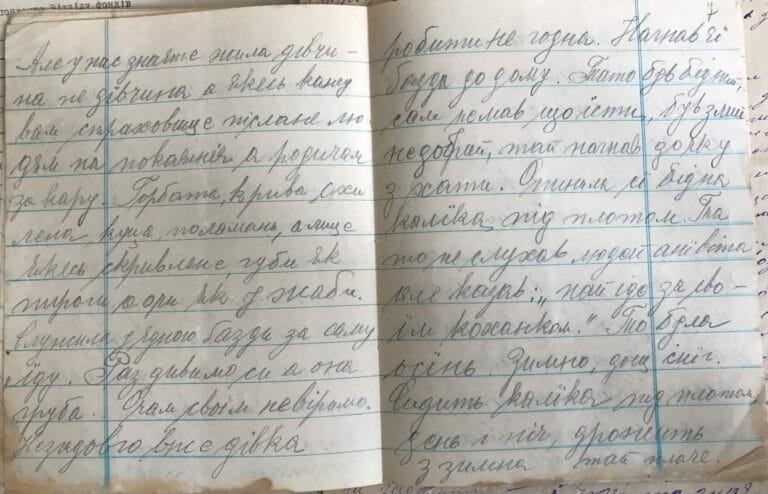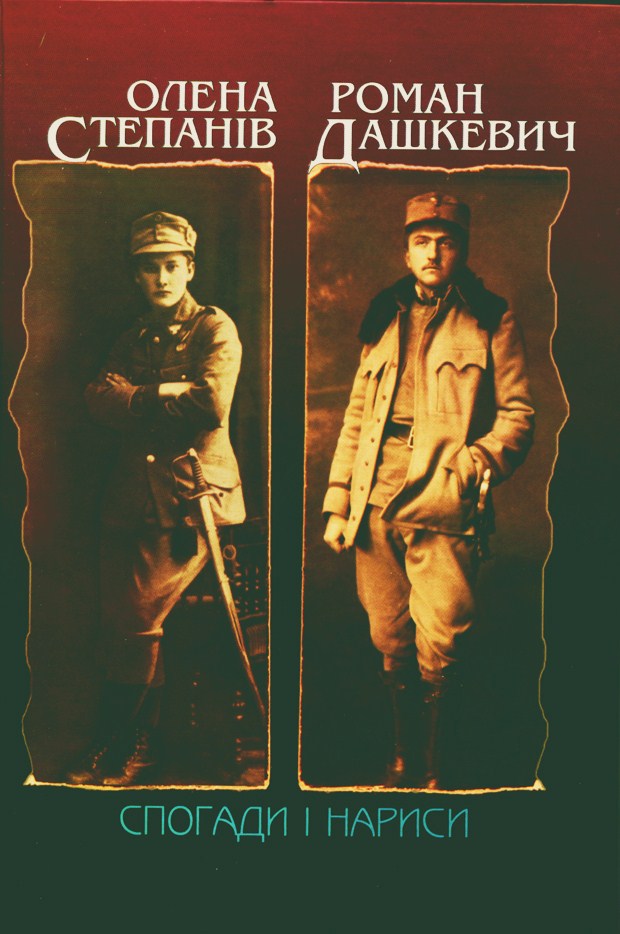In the Galician Army, we also had the sisters of charity, medical nurses. Next follow some stories about them.
From early May, 1919, I worked at the transit center in Zadvirya. Our troops positioned themselves along the line of Yarychiv-Borshchovychi. The brigade sent for me nurse Iskivna to help. It was the afternoon when she entered my carriage. She was of average height, broad-shouldered, with a full round face. She reported to me, and explained in response to my questions that she came from Bukovyna, finished the grammar school, and worked in the Austrian Army. True, she spoke good German.
– Can you read and write? I asked them in the presence of the brigade priest.
She got frustrated that I asked that question.
I assigned her to compile a list of the wounded soldiers to be transported. An hour passed, then another one, when she delivered the list to me.
I suspected there was something wrong, and I asked her whether she wrote it herself.
Of course! – and she left.
Several minutes later, a railway worker from Borshchovychi came over, and asked to hire him as a nurse attendant because he was unemployed. He claimed he even managed to compile a list of wounded patients because the nurse asked him to, claiming she could only write in German. Shortly after, we realized that neither could she write in German, when she had to sign the prescription. She read a German book upside down. Once, she had to change the wound dressing. She could not manage.
Two weeks later, I fired her, although she boasted to my wife that I would not dismiss her because we “were close”. Most probably, she soon found a place in another hospital as a nurse.
Or, at other time, the Corps Command delegated two nurses to the brigade infirmary.
I asked them for any reference certificates from the Austrian army, they did not have any.
– What did you do there?
– I was a nurse in the Krankenlabestation, sister Vitrykush answered (I am not sure it was her real name).
And they sent them here from the state Secretariate, with no data and without making sure they had any skills or competences.
Then, the Kurin command brought a nurse L.V. Two weeks later, I sent her to Zolochiv hospital for treatment. Later, I came across her in Ukraine. There, she was already a medic. The Kurin commandant dismissed the medic, for her sake, to keep her in.
Who is to blame that in the greater Ukraine there were thousands of graves? Patients would often see a nurse who only came in to accompany the doctor’s visit in the hall. She would listen to what he said, and that was all of her work.
***
They say, there is a grain of truth in every joke. Tukhlia-based “Vzad” (homor magazine of POWs in Tukhlia) published in one of the issues the following thing:
A sanitary chief came to Vinnytsia to control the reserve hospital.
– How many nurses do you have, dear colleague?
– Eight.
– What are their functions?
– One of them takes walks with her fiancé, two of them take care of their cows, one of them is at a doctor’s disposal, two nurses supervise in the kitchen, nurse K. makes eyes at the cornet medic, and the eighths nurse would sometimes tend to patients.
– “Great,” says the sanitary chief. “How many carts do you have and what do they carry?”
– Thirty. Of them, one is a personal cart, and one is for my personal luggage. One cart for the luggage of the nurse assigned to me. The fourth cart is taken by a nurse with her fiancé. Then follows a nurse with the medic. The cow nurses travel together with the senior chargeman of the hospital attendant. Two carts are used to transport the nurses’ luggage. There are also carts carrying food supplies, etc.
– What about the patients?
There is no room for them left.




Memories of Stepan Haiduchok, Ukrainian pedagogue, author of books on sports teaching, about the Ukrainian-Polish war of 1918-19 and female medical service.